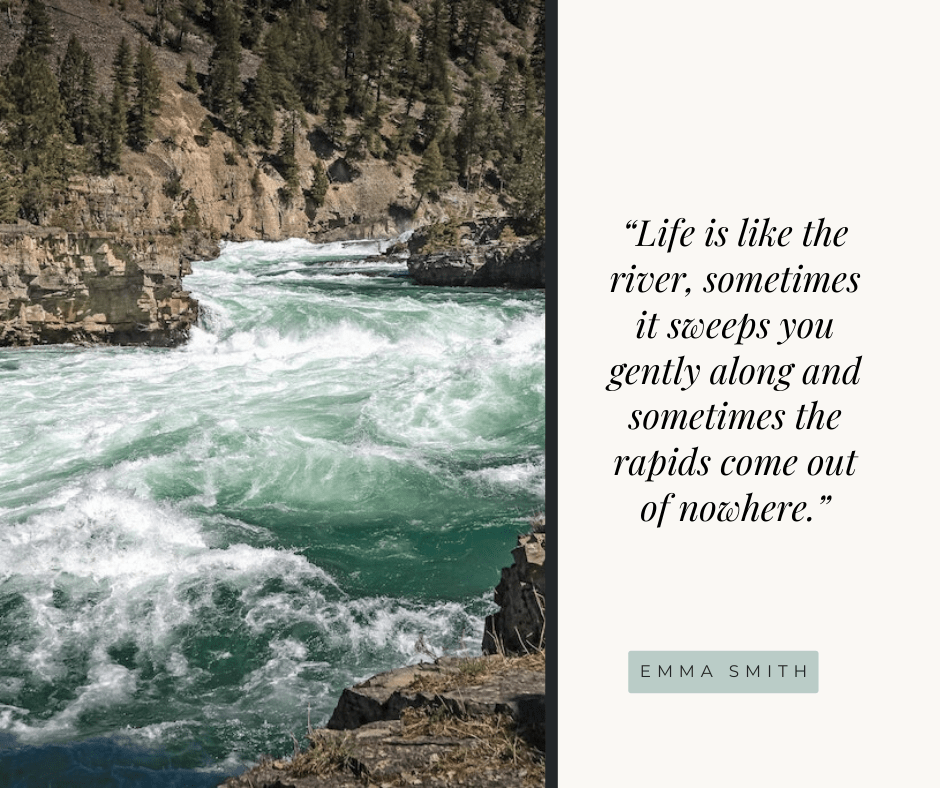My journey on the Caregiver River started in rough water and became increasingly more challenging until I was out of the raft altogether and almost completely submerged. As I reflect on the last seven years, I see the experience as a crystal clear rite of passage. I was wholly unprepared when I started this adventure. I had no rafting skills, had not secured a guide, and had no real supplies. I was capable and resourceful. How hard could it be? It was hard.
At one point early in the journey, I was hanging on to the raft, well not hanging on; I had one hand on the guide-rope, feet dragging as the swift water rushed past and the boat bounced from boulder to boulder and over drops. I was about to lose my grip and somehow didn’t. I climbed back into the raft, and eventually, the waters calmed. I learned a few skills and began to navigate the river with more confidence. The river didn’t change. There were still rapids, rocks, twists, and turns. I knew waterfalls were on the horizon, but I knew that I would be okay.
A few lessons learned during my expedition on the Caregiver River:
Float with the Flow
This river had a destination, and I initially resisted the current. I paddled upstream and when I did move with the current, downed limbs and boulders often blocked my path. I eventually, stopped resisting the river’s flow and focused on navigating. I developed skills such as mindfulness and setting boundaries. I learned to read the water and prepare for the challenges ahead. I managed the swift water stress in healthier ways. Release your fear of the future and flow with the river from the present moment. The river offers a renewable source of energy that will sustain you on the journey.
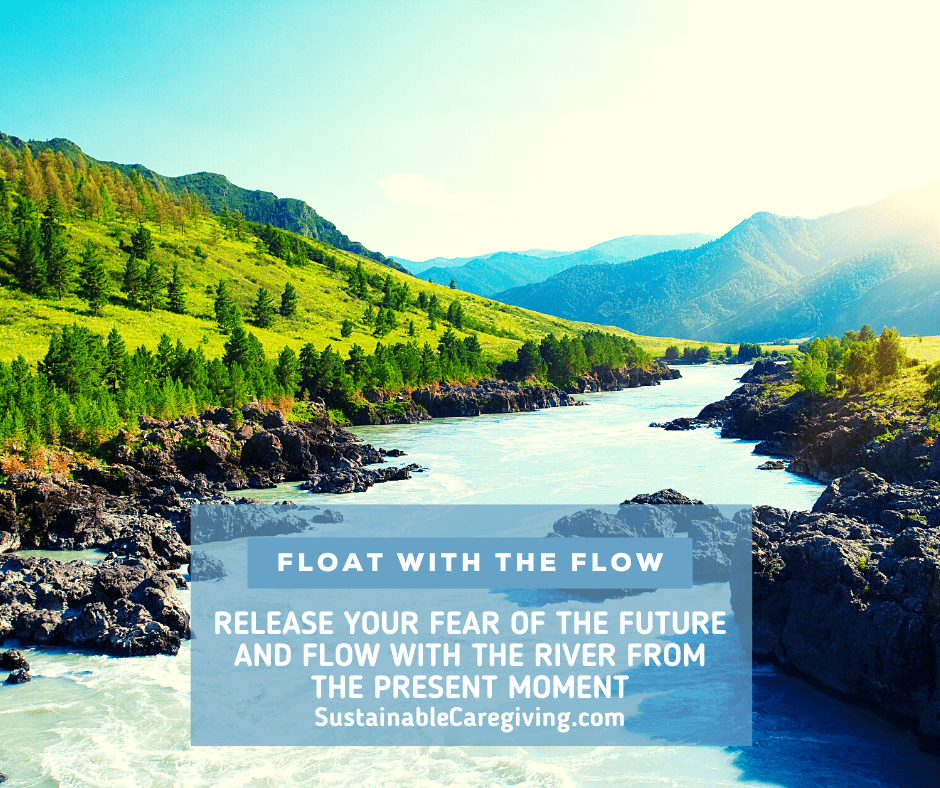
Waterfalls lead to Rainbows
The most challenging aspects of the caregiver river led to the greatest gifts. The gift may have been a lesson, a revelation, a new traveling companion, or a new perspective. Journaling helped me process caregiving’s complexities, emotions, fear, and confusion. Writing offered a release and reprieve from the swirling sensations. Let your thoughts and words flow like a raging river, a gentle stream, or a waterfall spilling and splashing onto the page. Within the words, you may find the reward.
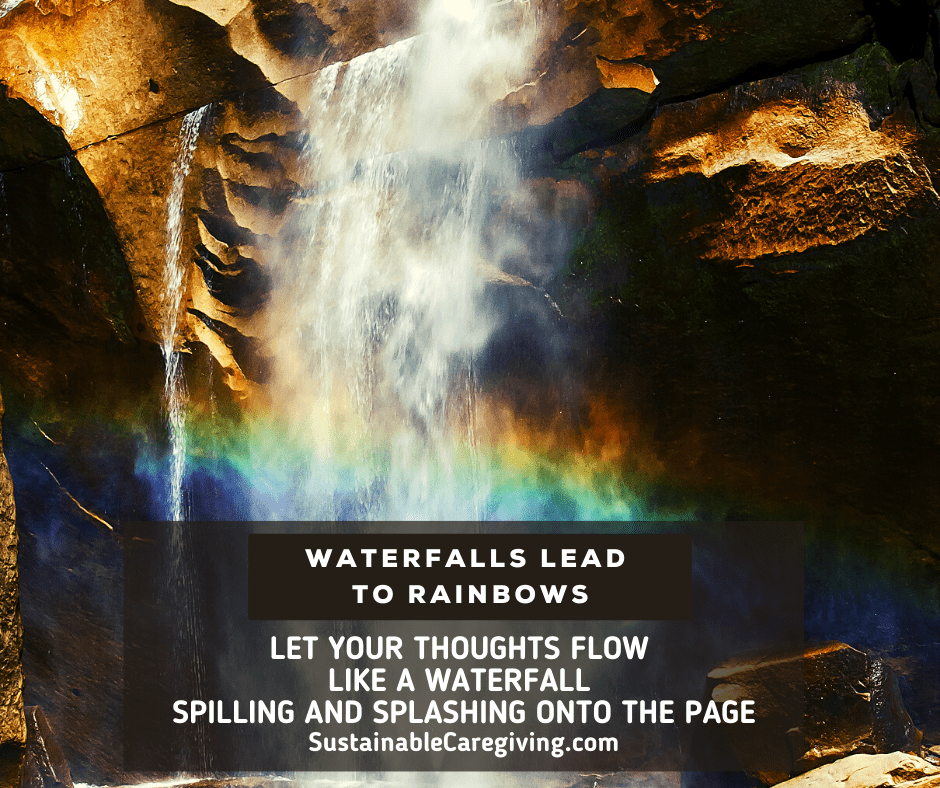
Expeditions Require Stamina
In the early days of caregiving, I forged ahead with force and willpower. As I prioritized Dad’s health and safety, I neglected my own well-being until I felt like an empty shell with nothing left to give. When I made self-care a priority, I felt whole again and began to navigate the river with confidence. What replenishes your power? Develop a routine that prioritizes your well-being and includes your passions reimagined to fit within your new reality.
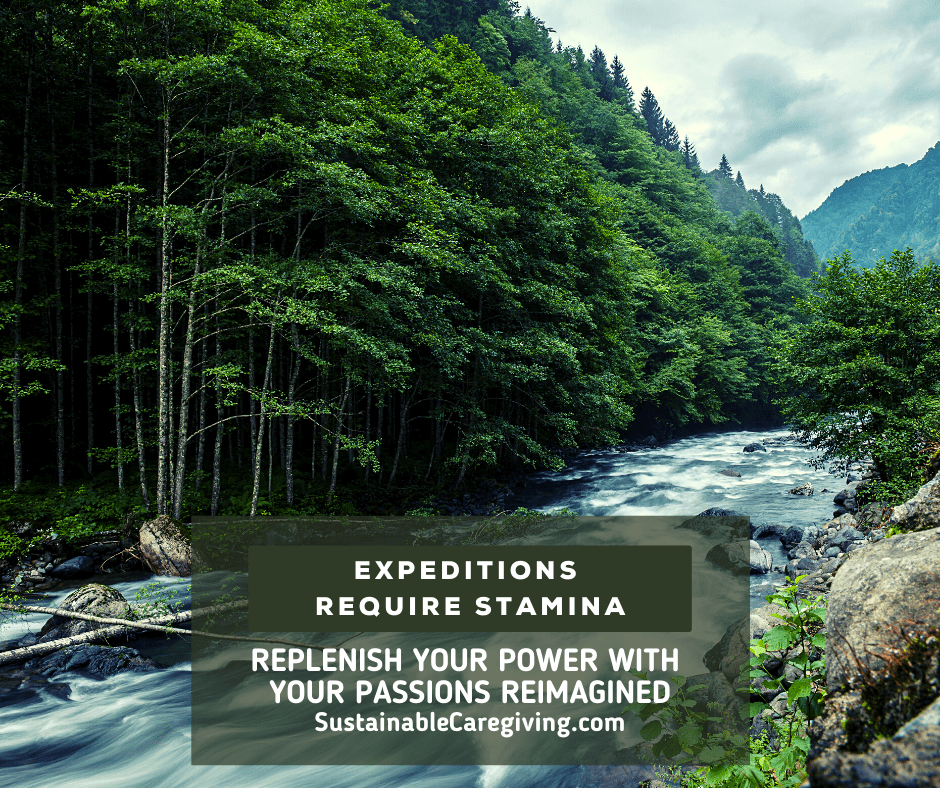
Flow from the Present Moment
In the beginning, I spent a lot of time ruminating about the past and worrying about the future. Through meditation and mindfulness, I cultivated awareness and learned to meet myself where I was. I leaned into the uncomfortable emotions rather than avoiding them and learned to embrace them with openness and curiosity. Whether you are in a raging river or a meandering creek, you will experience vitality when you tap into the source of the river’s power and grace. The gifts are found in the present moment.
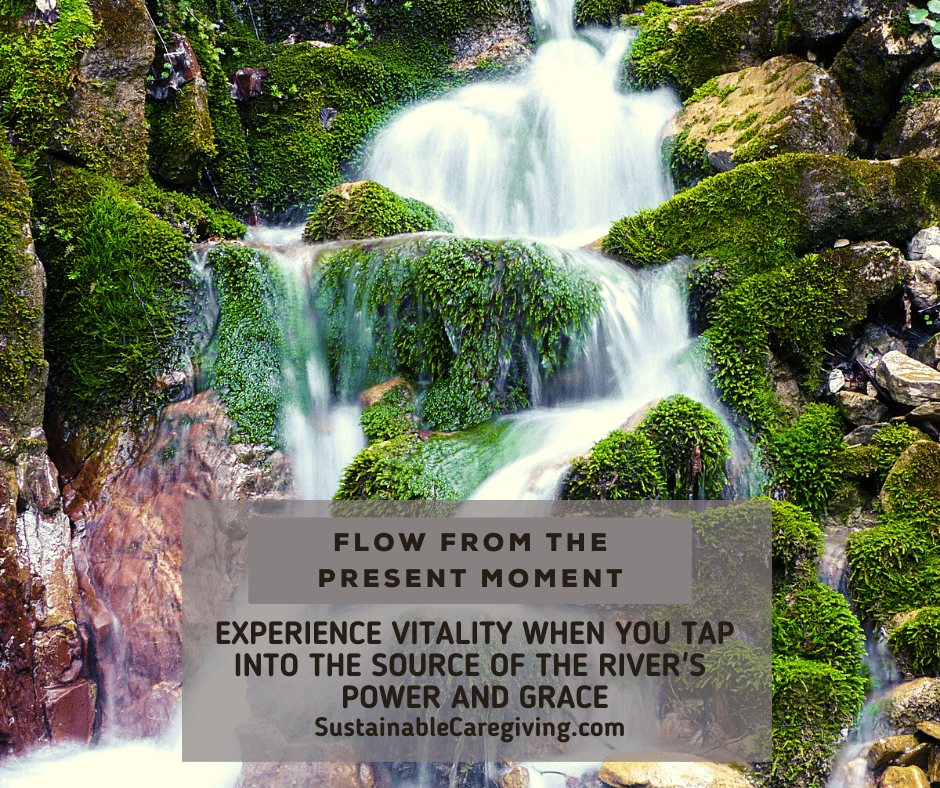
Create a Sustainable Ecosystem
We float along on the Caregiver River and face struggles that share much in common, and yet, every journey is unique. Even more significant is that each family caregiver is unique, and we must each find a personal course to a meaningful journey. When I identified what sustained me and prioritized my well-being, I created an ecosystem that provided physical and emotional support and adapted to ever-changing circumstances and needs. Construct a solid yet fluid customized Caregiver Support System. Establish your foundation and cornerstone. Piece together your support system with your unique building blocks and infrastructure components.
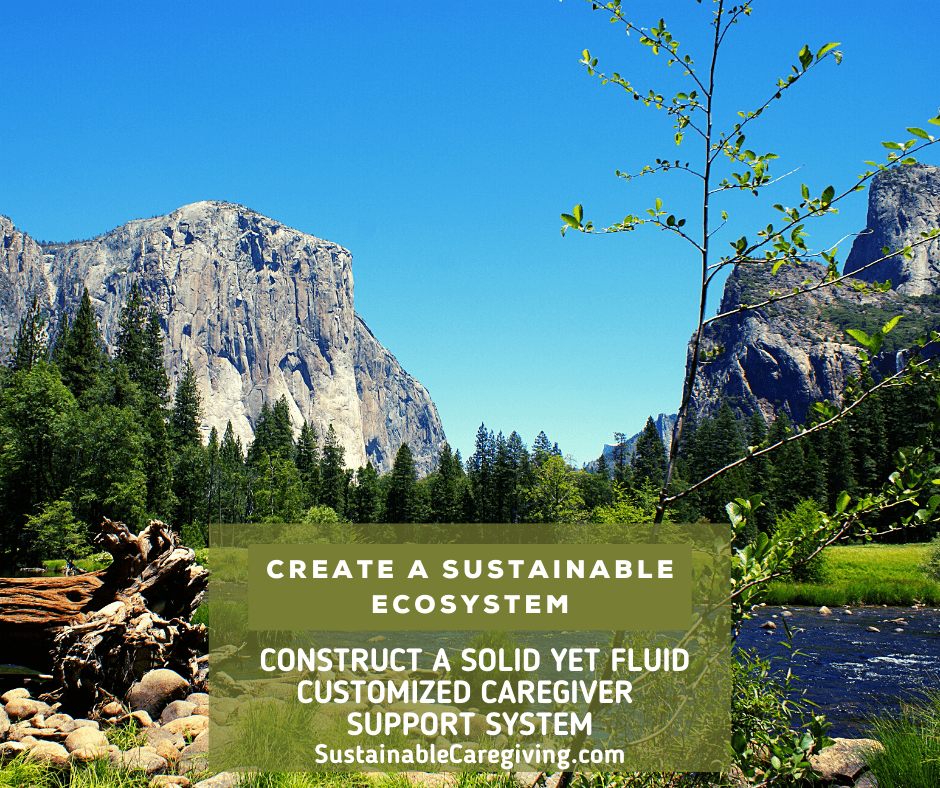
Carve a new path
The Caregiver River was brimming with obstacles. I learned when to circumnavigate an obstruction and when to use an impediment to facilitate momentum. I learned to focus on the path I intended to take rather than the boulder blocking the way. Obstacles make us emotional. When we navigate the barriers while maintaining momentum, we also maintain our well-being. When an obstacle obstructs the flow, become the flow.
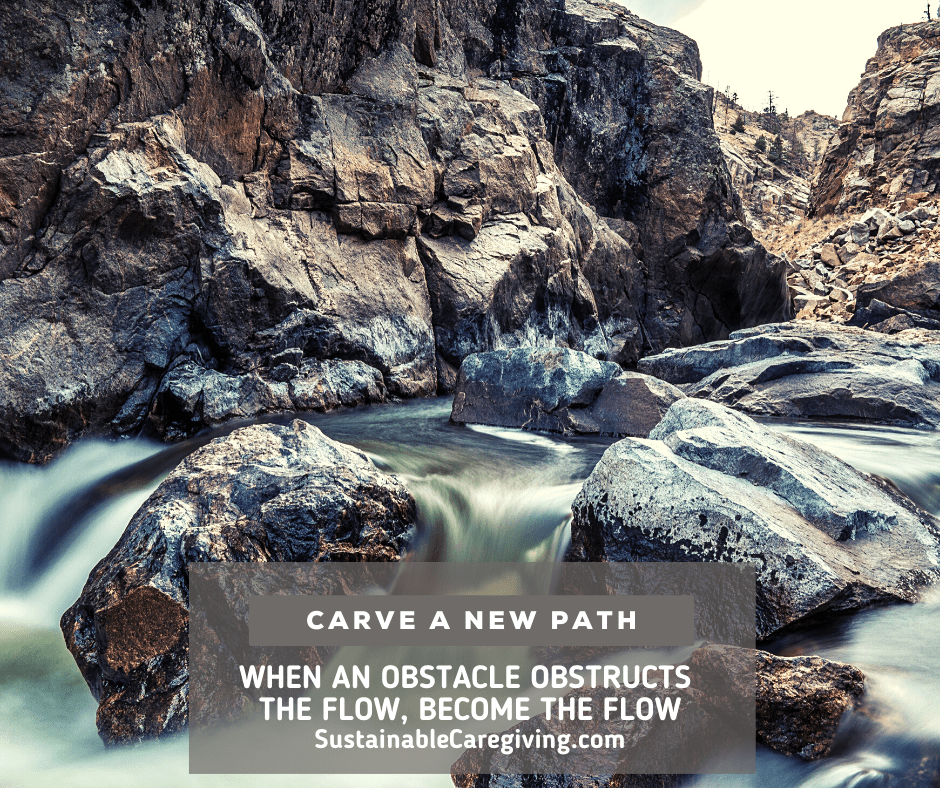
Respect the Riverbank
When I focused on the Caregiver River’s obstacles, I rarely looked up and therefore paid little attention to the riverbank boundaries. As I became more aware of how the terrain on either side shaped the river, I learned to set, reinforce and adjust limits. As we protect our boundaries from overflow and erosion, we recognize that the river may change course as a result of these modifications. Boundaries can be too flexible, too rigid, or just right. In nature, a river will widen, narrow, and adapt to the landscape and the flow. Let current conditions and the flow of emotions guide your boundaries.
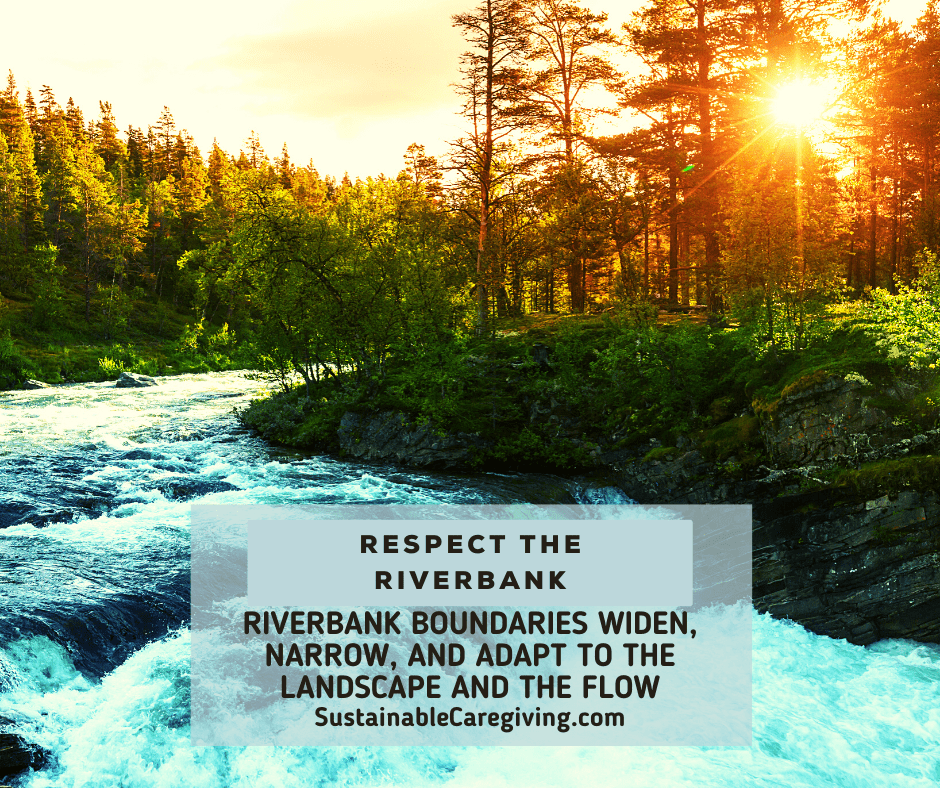
Let Love Release the Anchor
Anger was an anchor dragging the river bottom, slowing progress and catching every obstacle below the surface. Repeated attempts to release the anchor failed until I found Amor Fati, leaned into the anger, embraced it, and used it to learn and grow into my caregiving role. Love of fate led to loving the Caregiver River. Embrace the boulders, the wildness, the rapids, and the waterfalls and release the emotions that prevent you from flowing in harmony with the current.
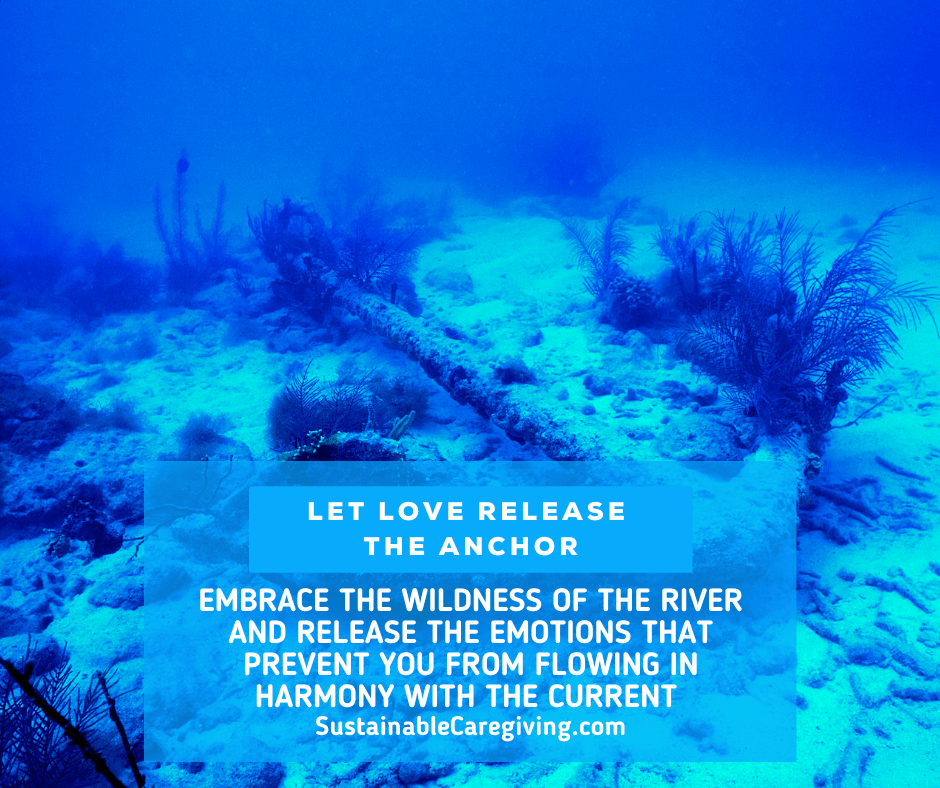
The next segment of the journey
Dad passed away in December, six weeks after his 99th birthday. He had hoped to make it to 100, but it wasn’t meant to be. Dad lived life on his terms until the end. He spent his last full day painting and had his gin at 3 pm. The day that he left us, he made his bed, watched mass, and listened to his music station while we sat at his side. Over the years, I learned many lessons from Dad, who was, coincidentally or not, a teacher by profession. Dad continued to teach me valuable lessons as I struggled in my role to help him age in place with the dignity and grace that he demonstrated throughout his life.
Navigating the Caregiver River: A Journey to Sustainable Caregiving is available on Amazon. Also, check out the Self-Caregiving Strategies Podcast.
Schedule Theresa Wilbanks to speak on caregiving and empower the caregivers in your workplace or community with the 12 Sustainable Caregiving Strategies.
Advice offered is for general information only; please contact your healthcare team, legal or financial advisors to guide your particular situation.

